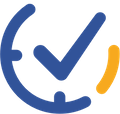Tiny habits are exactly what they sound like – small, manageable actions that you can easily incorporate into your daily routine. Instead of aiming to run a marathon, start with a 60-second jog. Rather than overhauling your entire diet, begin by adding one vegetable to your plate each day.
Why does this work? As BJ Fogg, the mastermind behind the Tiny Habits method, explains: “To create a new habit, you must first simplify the behavior. Make it tiny, even ridiculous. A good tiny behavior is easy to do — and fast.”
The Science Behind the Magic
Your brain loves habits. They’re efficient, requiring less mental energy than conscious decision-making. When you repeat a behavior, your brain creates neural pathways that make the action more automatic over time. This process, called neuroplasticity, is your brain’s superpower for change. Neuroplasticity allows your brain to reorganize itself by forming new connections between neurons, adapting to new experiences, learning, and practicing behaviors. This means that every time you engage in a new habit, you’re literally reshaping your brain to make this behavior more instinctual. The more frequently you perform the habit, the stronger and more ingrained these neural pathways become, eventually leading the action to become second nature.
A study published in the European Journal of Social Psychology found that it takes an average of 66 days for a new behavior to become automatic. This timeframe can vary depending on the complexity of the habit and the individual’s consistency in performing it. Simple habits, like drinking a glass of water in the morning or taking a short walk after dinner, require less effort and decision-making, making them easier to integrate into your daily routine.

Identifying Your Tiny Habits
Identifying your tiny habits is a personalized path that begins with reflection and goal setting. Here are some practical steps:
– Define Your Big Picture: What areas of your life do you want to improve? Is it your health, productivity, relationships, or perhaps your personal growth? Clearly identifying your overarching goals will give you a sense of direction and purpose. Think about what you truly want to achieve and visualize the long-term benefits of making these changes.
– Break It Down: For each goal, brainstorm tiny actions that contribute to it. Think small! The key to forming lasting habits is to start with actions so small they seem almost trivial. For instance, if you want to improve your health, a tiny action could be drinking a glass of water first thing in the morning. If you aim to boost productivity, perhaps it’s writing down one task you want to accomplish each day.
– Anchor It: Attach your new habit to an existing routine. This is called habit stacking. By linking your new habit to something you already do regularly, you create a cue that triggers the desired behavior. For example, if you want to meditate daily, you could anchor this habit to your morning coffee ritual. The existing habit acts as a reliable prompt, helping you remember and perform the new habit consistently.
– Celebrate: Every time you complete your tiny habit, celebrate! This positive reinforcement helps wire the habit into your brain. Celebrations can be simple yet powerful – a smile, a fist pump, or saying “Good job!” to yourself. This immediate reward creates a positive emotional response, making it more likely that you’ll repeat the behavior in the future. Celebrating your successes, no matter how small, builds a positive association with the habit and encourages continued practice.

Overcoming Obstacles:
“The truth is, a habit must be established before it can be improved.” – Stephen Guise, Mini Habits
Even with tiny habits, you might face challenges. Here are some tips to stay on track:
– Be Patient: You’re playing the long game. Consistency trumps perfection. It’s important to acknowledge that forming a new habit takes time and persistence. Progress might be slow initially, but over time, these small efforts will compound into significant results.
– Adjust as Needed: If a habit isn’t working, tweak it. Make it even smaller if necessary. The key is to maintain momentum and not get discouraged. Flexibility is essential; if one approach doesn’t work, don’t be afraid to experiment with another until you find what fits best for you.
– Use Visual Cues: Place reminders in your environment to trigger your new habits. These cues can be sticky notes, alarms, or strategically placed items that prompt you to engage in your new behavior. Visual reminders can help reinforce your commitment and keep your goals at the forefront of your mind.
– Track Your Progress: Use a habit tracker app or journal to stay motivated. Documenting your progress allows you to see how far you’ve come and provides a sense of accomplishment. This visual representation of your journey can be incredibly motivating and help you stay focused on your goals.
– Find an Accountability Partner: Share your tiny habits journey with a friend for mutual support. Having someone to share your successes and setbacks with can provide encouragement and make the process more enjoyable. An accountability partner can offer valuable feedback, celebrate your milestones, and help you stay committed to your habit-forming journey.
As you master tiny habits, you’ll likely experience what BJ Fogg calls the “Swarm of Bs” – a cascade of positive behavior changes. Your success with small habits builds confidence, making larger changes seem more achievable.
Resources to Dive Deeper
Want to explore tiny habits further? Here are some top-notch resources:
Books:
• Tiny Habits: The Small Changes That Change Everything by BJ Fogg
• Atomic Habits by James Clear
• Mini Habits: Smaller Habits, Bigger Results by Stephen Guise
Podcasts:
• The Habit Coach with Ashdin Doctor
• Tiny Leaps, Big Changes hosted by Gregg Clunis

The journey of a thousand miles begins with a single step – or in this case, a tiny habit. Each small action you take today can be the catalyst for significant transformation in your life. Whether it’s reading a single page before bed, doing five push-ups after brushing your teeth, or taking three deep breaths before checking your phone, these tiny habits can have a profound impact over time. So, what small action will you take today to kickstart your personal growth journey?




